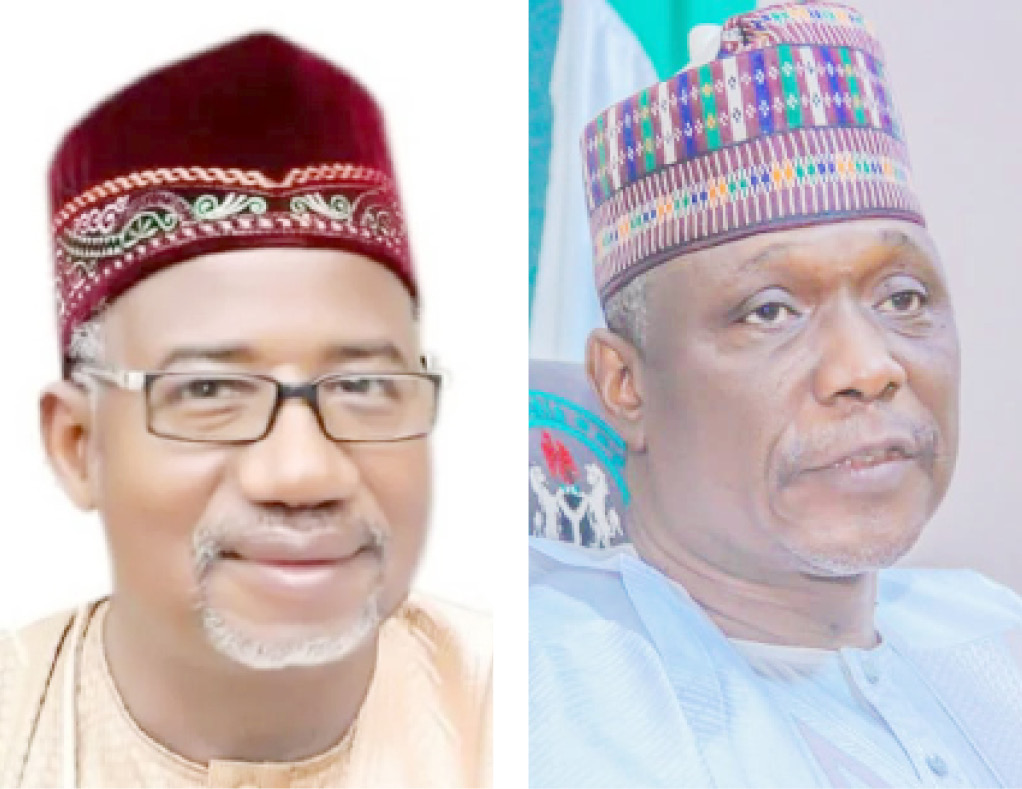Since the return of democratically elected government in 1999, the governorship seat in Bauchi State has remained in the Southern Senatorial Zone of the state despite agitations by the other zones for a power shift.
Bauchi State has 20 local government areas out of which the southern zone consists of seven LGAs: Alkaleri, Kirfi, Bauchi, Bogoro, Dass, Tafawa Balewa, and Toro.
The northern zone also has seven LGAs, comprising Gamawa Katagum, Giade, Jama’are, Itas Gadau, Shira, and Zaki; leaving the central zone with six LGAs: Ganjuwa, Ningi, Warji, Darazo, Misau, and Damban LGAs.
Findings indicate that some factors have been responsible for why the southern zone has had a monopolistic grip on the governorship seat of the state since its creation.
- Ex-UN pension boss faults FG on N185bn palliative to states
- NIGERIA DAILY: How Appointment of 131 Women SSAs Will Affect Niger State
Among them are population, political rivalry, as well as clash of interest between the political bigwigs from the north and central zones among others.
In terms of population, Bauchi South is above the two other zones put together with two densely populated LGAs, especially Bauchi City and Toro. This usually surpasses other LGAs with block votes, particularly during governorship elections in the state.
Another factor that works against the two zones is the age-long political rivalry of Bauchi-Katagum politics which manifested in the outcome of the just concluded governorship election in the state.
The candidate of the main opposition All Progressives Congress (APC), Air Marshal Sadique Abubakar won only six LGAs – all from the Northern and Central zones – without winning a single LGA in the Southern part of the state.
Abubakar who hails from the northern zone, won in his own local government Giade, Katagum, Gamawa, Itas Gadau from the north, and two LGAs from the central zones of Misau and Darazo.
But the incumbent swept his seven southern LGAs and another seven from the two zones to win the election.
Checks further revealed that lack of unity and the clash of interest among the elite and political bigwigs of the two zones over agitation for the creation of Katagum State out of the present Bauchi has also polarized stakeholders because some politicians from the central zone are against the move.
The situation has prompted agitations and demand for power shift from the south to the north which has manifested even among gladiators who throw their weight behind the APC candidate.
Power shift agitations
A prominent political pressure group, Zauren Mutanen Bauchi, has championed agitations for a power shift from southern Bauchi to other zones of the state from 2019 to 2023.
The chairman of the group and grandson of the late Prime Minister, Sir Abubakar Tafawa Balewa, Abubakar Bili Tafawa Balewa, told Daily Trust that the group has been canvassing for power shift on three cardinal principles including good governance, accountability, and fairness.
Tafawa Balewa said: “Politics is a game of numbers where the majority carries the votes and the minority has a say. Southern Bauchi in terms of population is the most favoured to produce the governorship of Bauchi since 1999.
“However, we feel there is a need to have a shift of power because first, it brings unity as no part of the state will feel discriminated against. Part of our agitation is that in any zone there are good and bad people depending on whom you pick amid the Bauchi-Katagum dichotomy which posits that people from Katagum are not free and comfortable with the people of Bauchi and vice versa.”
He also said the acrimony between Bauchi North and South was heightened to the extent that people don’t trust each other.
“Like I earlier said, our movement saw the danger and decided to advocate for a power shift not because we had any issue with the incumbent governor but because we wanted to have a new leaf so that the state will have a good sigh of relief whereby anyone from any part of the state can become a governor so long as you are qualified.
“Unfortunately, we that advocated for the shift were not carried along by the people of the two other zones; they don’t trust our intentions which are pure because we wanted good governance in the sense that where I come from does not matter. But we are not deterred because we believe it is a matter of time and we will keep agitating,” he said.
A prominent politician from Northern Bauchi and the immediate past leader of Bauchi State House Assembly, Hon Tijjani Aliyu, said there is agitation for a power shift from Bauchi South to the two other zones for fairness and stability because: “People are not happy with the way things are happening in Bauchi State.
“Recent examples are the newly appointed commissioners where two persons were picked from three local governments all from Southern Bauchi where the governor comes from.”
Aliyu noted that if a governor remains in one zone and the people are treated fairly in terms of appointment and resources so be it because people want development in their areas too.
“But when development is concentrated in one location, that is what prompted the agitation for power shift until there is a semblance of fairness.
“When you look at what is happening in Bauchi State, there was no fairness because the central and north were left behind with only deputy governor and speaker who have no influence.”
Aliyu said the speaker too could not influence any strategic project or programme in his zone because the onus lay with the governor and if he liked, he could award a road project of N10 billion in Alkaleri or any of the LGAs he wished.
“But can the deputy governor or speaker award any project of such magnitude? As long as there was no semblance of fairness, the struggle or agitation will continue and people will be disenchanted with what is happening because the power of a governor is beyond imagination.”
Commenting on the Bauchi-Katagum political rivalry, Aliyu said, “The Bauchi-Katagum political rivalry is a mere creation to divide ordinary people of the state by some few political elites to continue business as usual because there was nothing like Bauchi-Katagum as a majority of the people are just one entity.
“We have the same culture, one religion but a particular clique of people is using that gimmick to perpetuate themselves in government. You can go round the state and observe how people across the zones interact with one another without any discrimination but when it comes to issues of governance, that is where the differences emerge.”
A resident of the central zone and lecturer at the Abubakar Tatari Ali Polytechnic, Abdul Ahmad Burra said, “I think the agitation by the other zones of Bauchi State to produce a governor is based on the need of the people to have a sense of belonging in the governance of the state.
“The zones have never produced a governor since the return of democracy in 1999 and really people must feel shortchanged looking at the population and the strategic disposition of the central zone in the state.”
Burra said that based on the principle of inclusion, equity, and justice, people in the central and northern zones have a case and Bauchi South should have a sense of give and take.
“If you look at the political history of Bauchi State, you will see that in all the republics we have had since independence, the six local government areas that make up the central zone have neither produced a governor nor deputy governor. All the governors and deputies that the state produced came from present Bauchi South, Bauchi North, and former Gombe zone when it was part of Bauchi State,” Burra said.
“Now that dividends of democracy in Nigeria are concentrated in the zones that produce leaders, it is politically correct for the next succession plan to be centered to the central zone by all political parties,” Burra added.

 Join Daily Trust WhatsApp Community For Quick Access To News and Happenings Around You.
Join Daily Trust WhatsApp Community For Quick Access To News and Happenings Around You.


